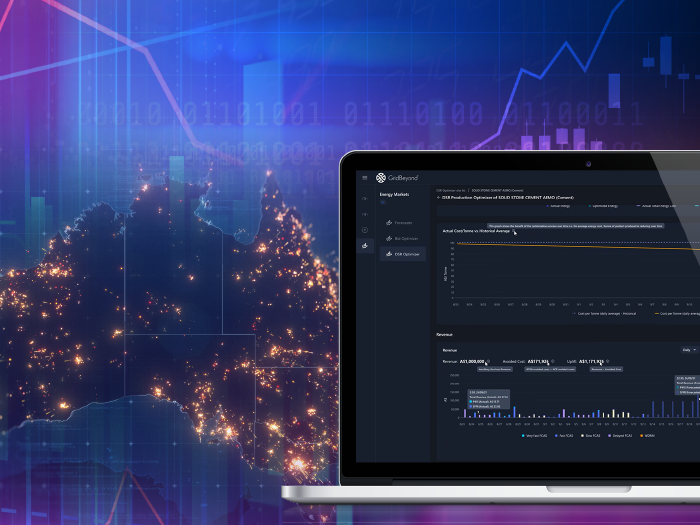News
better business decisions
Posted 1 year ago | 4 minute read

Frequency Control Ancillary Services…explained
The power system requires that both generation and load are in balance in order to operate safely. If there is a variation in generation without a corresponding variation in load then the frequency of the power system will deviate, which can lead to instability or, at extreme levels, cascading failure and blackouts.
In this article we explore Frequency Control Ancillary Services (FCAS) in Australia and how these services aid grid stability.
What is FCAS?
Grid frequency, typically measured in Hertz (Hz), represents the alternating current (AC) cycle frequency at which electricity is delivered. In most regions, this frequency is maintained at a constant level, often around 50 or 60 Hz, depending on the standards and practices of the area.
In Australia, Frequency Control Ancillary Services (FCAS) assists in maintaining the frequency of the grid as close to 50Hz as possible. However, fluctuations in electricity consumption and generation can cause deviations from this standard frequency. These deviations pose a risk to the stability of the grid, potentially leading to blackouts or other disruptions. FCAS refer to a set of mechanisms and services implemented within power systems to regulate and stabilize grid frequency by providing a fast injection or fast reduction of energy, to manage supply and demand.
How FCAS works
FCAS operates through a combination of market-based mechanisms and technical solutions. It involves a range of services aimed at both managing sudden imbalances in supply and demand (known as contingency events) and providing continuous adjustments to maintain frequency stability.
- Response Time: FCAS services are distinguished by their response time, ranging from seconds to minutes. Fast-responding services are crucial for addressing sudden frequency deviations, while slower services help to manage longer-term imbalances.
- Market Operations: FCAS is often operated through competitive markets where providers bid to supply ancillary services. Market operators dispatch services based on bids, ensuring cost-effective and efficient provision of FCAS while maintaining grid reliability.
- Regulation Services: These services involve continuous adjustments to generator output or load consumption to counteract gradual changes in supply-demand balance and maintain grid frequency within a predefined range.
- Contingency Services: In the event of sudden disruptions such as generator failures or unexpected demand spikes, contingency services provide rapid responses to restore grid frequency to its nominal value.
FCAS finds application in various sectors of the power industry, including the integration of renewable energy sources and grid support services. Batteries, for example, can dispatch their stored energy to support the grid during times of high demand or unexpected fluctuations. When participating in the FCAS market, participants typically work through aggregators, such as GridBeyond, that coordinate multiple sites.
How it works
At GridBeyond, we empower our customers to respond effectively when the grid is unbalanced. They achieve this by curtailing the energy use of non-critical equipment or seamlessly switching to their onsite backup generators.
GridBeyond’s FCAS Auto-rebidder combines sophisticated hardware control with backend software algorithms, this solution automates the real-time bidding process for dynamic loads in the FCAS market (a real-time, 5-minute market). This enhanced capability will allow GridBeyond to optimise the bidding strategy for customers with large, dynamic loads, such as metals companies, leading to a significant increase in their revenue.
For example, applied to a metal furnace, FCAS Auto-rebidder takes real-time signals from the operation and determines the stage of the melt process. Knowing the state of the melt process, allows it to determine if there is going to be a change in load in the upcoming 5-minute period. If the melt process will end before the end of the upcoming 5-minute period, there is an opportunity to bid out of market and disarm the controller on the furnace. This is very useful for spikey loads, as a demonstration for the metal industry, to maximize the number of trading periods that they are in market for.
In addition to FCAS, our other Demand Response programs run concurrently, allowing our customers to maximise their total annual value. By optimising their flexibility assets across multiple programs, they can achieve greater efficiency and profitability while supporting a stable and reliable grid.

GridBeyond launches FCAS Auto-rebidder in Australia
GridBeyond. a global smart energy company, has announced the launch of its latest innovation, the FCAS (Frequency Control Ancillary Services) Auto-rebidder.
Learn more




